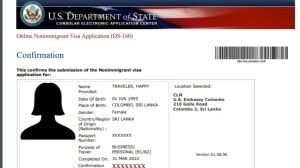As awareness rises of the adverse effects of e-cigarettes, especially among the young population, many countries are putting their foot down and banning the supply and consumption of e-cigarettes, also known as vapes and puff bars. New Zealand is all set to join the list of countries that have banned e-cigarettes.
According to reports, retailers in New Zealand who sell vaping products to individuals under 18 years old will encounter fines of up to 100,000 New Zealand dollars (equivalent to USD 60,000), while individuals will face fines of 1,000 New Zealand dollars (about USD 600).
The Associate Health Minister of New Zealand Casey Costello said on Wednesday, “While vaping has contributed to a significant fall in our smoking rates, the rapid rise in youth vaping has been a real concern for parents, teachers and health professionals.”
E-cigarettes have been on the market since 2007 and about 33 countries have banned vapes consumption including India, North Korea and Brazil.
Surge in sale of e-cigarettes
According to a recent study cited by the Centers for Disease Control and Prevention, monthly e-cigarette sales in the US surged from 15.5 million units in 2020 to 22.7 million in 2022, making them the predominant tobacco product among young people.
Globally, based on a 2023 World Health Organization report, electronic nicotine delivery systems are regulated in 121 countries or territories. Among these, 33 countries have prohibited their sale, while 87 have enacted various regulations, including age restrictions on sales, bans on advertising, and the prohibition of vaping in public indoor areas.
Here is the list of countries that have banned e-cigarettes effectively:
- Argentina
- Brazil
- Brunei Darussalam
- Cabo Verde
- Cambodia
- North Korea
- Ethiopia
- Gambia
- India
- Iran
- Iraq
- Jordan
- Laos
- Malaysia
- Mauritius
- Mexico*
- Nicaragua
- Norway
- Oman
- Panama
- Qatar
- Singapore
- Sri Lanka
- Suriname
- Syria
- Thailand
- Timor-Leste
- Turkey
- Turkmenistan
- Uganda
- Uruguay
- Vanuatu
- Venezuela








